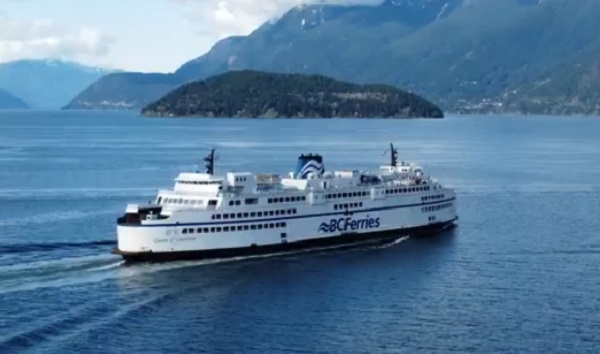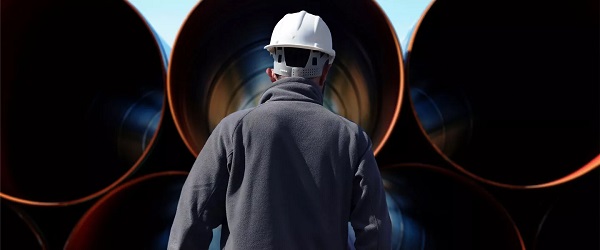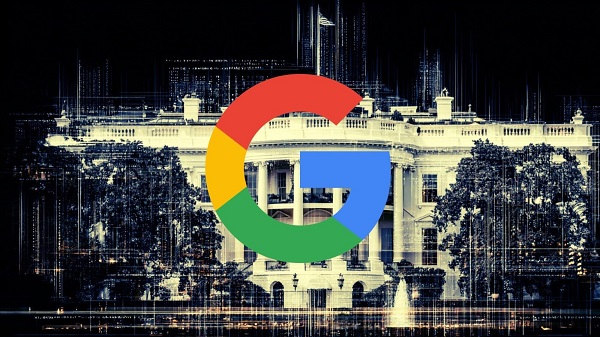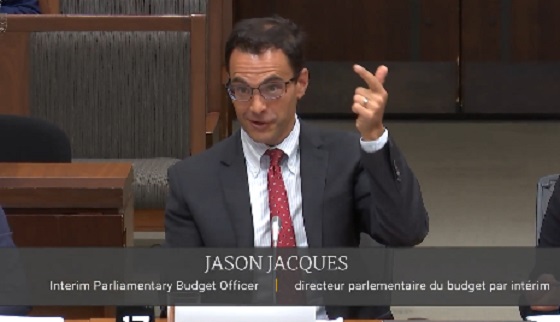International
Trump puts new price tag on Canada joining “Golden Dome”

Quick Hit:
President Trump has upped the cost for Canada to join the U.S. “Golden Dome” missile defense program to $71 billion—$10 billion more than his previous ask.
Key Details:
- Trump confirmed the new $71 billion figure while speaking to reporters aboard Air Force One.
- Canada has pushed back, with PM Mark Carney and diplomats calling Trump’s offer a “protection racket.”
- Trump said Canada could access the system for free if it became the 51st U.S. state.
Diving Deeper:
President Trump has put a new and steeper price on Canada’s potential entry into America’s “Golden Dome” missile defense program. Speaking from Air Force One on Monday, Trump told reporters, “They want to be in… Seventy-one billion they’re going to pay.”
That’s a $10 billion increase from the $61 billion figure Trump had previously floated, marking a sharp escalation in his negotiations with Ottawa. The Golden Dome, described by the administration as a “state-of-the-art” defense shield, aims to protect North America from a new era of missile threats—particularly those posed by China, Russia, and North Korea.
Trump has framed the Golden Dome as the long-awaited realization of Ronald Reagan’s “Star Wars” vision, using space-based sensors and interceptors to strike down incoming ballistic, cruise, or hypersonic missiles. Development timelines suggest full deployment is still 5–7 years off, but an initial $25 billion is already allocated in next year’s defense budget. The entire project may run upwards of $175 billion, with some estimates as high as $542 billion over 20 years.
Canada, which has long partnered with the U.S. under NORAD to detect airborne threats, has expressed interest in joining the project. But Trump is demanding a separate, costly buy-in. He reiterated that Ottawa would “have to pay a lot of money” to participate unless it pursued a full political union with the U.S. “It would be free if Canada became the 51st state,” he added.
Canadian leaders have pushed back hard. Prime Minister Mark Carney, re-elected in April after campaigning against U.S. interference, said Canada wants to protect its citizens but not under terms dictated from Washington. Ambassador to the U.N. Bob Rae went further, calling Trump’s offer a “protection racket.”
espionage
Canada Under Siege: Sparking a National Dialogue on Security and Corruption

By Garry Clement, and Dean Baxendale
Authors, Parliamentarians and Security Experts Rally for Ottawa Conference.
Canada is under siege — and most Canadians don’t even know it. Foreign interference, organized crime, opaque money flows, and state-backed influence operations are not distant threats. They are here, in our communities, our financial system, and even our political processes. They are undermining our sovereignty, corroding trust in our institutions, and shaping policies in ways that put the interests of hostile states and criminal networks ahead of those of Canadians.
This is no longer speculation. It is documented. It is systemic. And it is happening in plain sight.
To bring these dangers into the open, we are launching a national conversation through a press conference and public platform hosted by the Macdonald-Laurier Institute. On October 8 in Ottawa, we will introduce these threats to the national agenda. The event coincides with the release of our new book, Canada Under Siege: How Prince Edward Island Became a Forward Operating Base for the PRC, co-authored by Michel Juneau-Katsuya, Dean Baxendale, and myself. The book traces how Canada’s smallest province became a beachhead for Chinese state-linked influence operations.
Through real estate acquisitions, immigration and investor programs, and targeted political donations, foreign state actors — particularly the People’s Republic of China — have leveraged PEI as a soft entry point to the Canadian political and economic system. The island has become, in effect, a forward operating base for Chinese threat actors — and Canada looked away as it happened.
For too long, Canada has been complacent — willfully blind to malign influence operations, hostile state actors, and the domestic enablers who profit from weak laws and lax enforcement. Our financial system remains a magnet for dirty money, with beneficial ownership hidden behind shell companies. Our sanctions regime is inconsistently enforced, allowing sanctioned individuals and entities to move assets into Canada with impunity. Our immigration system has been exploited by corrupt actors who see Canada not as a home, but as a safe haven for assets and influence.
Ordinary Canadians are paying the price — housing unaffordability as foreign funds inflate markets; national security risks as critical infrastructure and technology sectors are infiltrated or acquired; and erosion of trust as Canadians lose faith in institutions that fail to protect them.
This national conversation will be evidence-based and solutions-focused. At the event we will assemble a distinguished group of experts — including former Prince Edward Island MP Wayne Easter; Senator Leo Housakos, Leader of the Opposition in the Senate, who will address Canada’s lack of action on national-security threats; Kevin Vuong, former Member of Parliament; LGen (Ret’d) Christopher Coates; Dean Baxendale, President of Optimum Publishing and democracy advocate; and Garry Clement, former RCMP Superintendent — to map the threat landscape and chart a practical, actionable path forward to safeguard Canada’s sovereignty, democracy and economy.
Canada must stop being a soft target. We must strengthen transparency laws to expose foreign funding, lobbying efforts, and beneficial ownership of Canadian assets; enforce sanctions and anti-money-laundering measures so dirty money cannot quietly flow into our economy; equip our intelligence and law enforcement agencies with the legal tools, resources, and political backing they need to disrupt and prosecute interference operations; and educate and engage Canadians so the public understands what is happening — and demands accountability from government and institutions.
The launch of Canada Under Siege and the Macdonald-Laurier Institute’s platform represent a turning point. This is our chance to move beyond whispers, beyond closed-door briefings, beyond the false comfort of “this could never happen here.” The threats to Canada’s democracy are real. They are here. And they are growing.
We believe Canadians deserve the truth — and a plan to confront it. This initiative will give them both. Canada has faced existential threats before, and we have always prevailed. But only when we recognized the danger, mobilized our citizens, and acted decisively.
The time to act is now.
The Bureau is a reader-supported publication.
To receive new posts and support my work, consider becoming a free or paid subscriber.
Business
BC Ferries Deal With China Risks Canada’s Security

From the Frontier Centre for Public Policy
A BC Ferries contract with China risks national security, public transparency and Canadian safety. Why are we still looking the other way?
Scott McGregor exposes how a billion-dollar BC Ferries deal with a Chinese shipyard reflects a deeper failure: Canadian institutions are shielding Beijing’s interests—at taxpayers’ expense—while ignoring glaring national security risks.
BC Ferries, the taxpayer-owned company operating ferry services along the B.C. coast, didn’t just sign a billion-dollar shipbuilding contract in China; it handed Beijing leverage over Canadian infrastructure.
Behind the bureaucratic talk of cost and efficiency lies a deeper scandal: a taxpayer-funded deal that puts national security, public transparency and Canadian citizens at risk, all to benefit a hostile regime.
When theBreaker.news, an independent investigative outlet in BC, filed freedom of information requests to uncover the contract’s details, BC Ferries refused to release a single page. The excuse? Disclosure might threaten its financial position, safety and the “interests of third parties.”
This refusal didn’t happen in a vacuum. It came the same day Chinese President Xi Jinping stood next to Russian President Vladimir Putin and North Korean leader Kim Jong Un in Beijing, giving a vivid display of authoritarian solidarity.
BC Ferries’ secrecy is bad optics. It flies in the face of multiple rulings by the B.C. Information and Privacy Commissioner, who has repeatedly upheld the public’s right to see contracts signed by public bodies. Cities and Crown corporations have been ordered to disclose their agreements with FIFA, the international soccer governing body, and with B.C. Place Stadium.
In fact, public institutions have disclosed deals far less sensitive than this one. Yet BC Ferries, propped up by a $1-billion loan from the Canada Infrastructure Bank (CIB), insists its Chinese shipbuilder must remain shielded from scrutiny. The result isn’t protection for taxpayers. It’s protection for Beijing’s leverage.
And that’s just the beginning. The more dangerous problem is legal. Canada has no bilateral agreements with China to guarantee fair legal treatment of its citizens. No non-prosecution provisions. No mutual legal assistance mechanisms. No safety net.
At home, corporations can sign remediation agreements to avoid prosecution if they cooperate and commit to reforms. But those agreements stop at Canada’s borders. They offer no protection for Canadians working in Weihai, the Chinese city where the vessels are built. If a dispute arises or Beijing flexes its power, those Canadians could face arbitrary detention, exit bans or national security charges. In a diplomatic crisis, they could become pawns.
This isn’t a theoretical risk. Michael Kovrig and Michael Spavor spent nearly three years in Chinese prisons after Canada detained Huawei executive Meng Wanzhou. That episode exposed the Chinese Communist Party’s playbook of hostage diplomacy. It should have ruled out any deal that places Canadian citizens or Crown assets under Chinese jurisdiction.
Yet even with that memory still fresh, the arrangement continues, quietly, with little public debate.
What we’re witnessing is a textbook case of hybrid warfare. Economic deals masked as trade. State financing disguised as commercial contracts. Political leverage embedded in infrastructure projects. And Canada, still clinging to the outdated promises of globalization, is paying for its own exposure.
At the moment when Beijing is supplying components for Russia’s war machine, Ottawa is greenlighting the outsourcing of core coastal infrastructure to a state-owned Chinese shipyard.
Parliament appears to be taking notice of the situation. The House of Commons Transport Committee has initiated a review of the $1 billion federal loan associated with the BC Ferries deal. The expected witnesses for this review include the CEO of the corporation, the CEO of the Canada Infrastructure Bank (CIB), Transport Minister Chrystia Freeland and Infrastructure Minister Gregor Robertson.
The review follows political pushback, including criticism from Freeland, who resigned from cabinet on Sept. 16, and had previously called the outsourcing decision “disappointing.”
This review is necessary because BC Ferries is a Crown-owned utility, governed by an NDP-appointed board and funded through federal support.
When a public entity conceals the terms of a massive contract and hands work to a Chinese state-controlled firm, it’s not just acting secretively. It’s normalizing a culture of opacity that weakens Canadian sovereignty and shields foreign interests from democratic accountability.
BC Ferries defends the deal by pointing to its projected economic benefits: four new major vessels, hybrid propulsion systems, 50,000 job-years and more than $4.5 billion in forecasted economic output.
But those figures come at the cost of strategic blindness.
Time and again, Canadian policymakers treat China like an ordinary business partner, even as the Chinese Communist Party uses law, finance and supply chains as tools of global influence. While other democracies are pulling back from partnerships with Chinese state firms, Canada looks the other way, tethered to outdated trade assumptions and short-term economics.
The remedy starts with sunlight. Contracts signed by public bodies must be disclosed, especially when they involve authoritarian regimes. But transparency is only the first step.
Canada must adopt a hybrid warfare lens for every major economic decision. That means asking hard questions: Does this deal strengthen or weaken our position? Does it open the door to foreign influence? Does it endanger Canadians abroad? Short-term savings can breed long-term dependency, and in China’s case, geopolitical exposure.
BC Ferries’ shipbuilding contract with China isn’t just a procurement mistake. It’s a warning.
Without legal safeguards, public oversight and strategic foresight, Canada isn’t just buying ferries; it’s handing over control.
And Canadians deserve better.
Scott McGregor is an intelligence consultant and co-author of The Mosaic Effect. He is a senior fellow at the Council on Countering Hybrid Warfare and writes here for the Frontier Centre for Public Policy.
-

 Alberta14 hours ago
Alberta14 hours agoFederal policies continue to block oil pipelines
-

 Autism15 hours ago
Autism15 hours agoAutism – what we know
-

 espionage1 hour ago
espionage1 hour agoCanada Under Siege: Sparking a National Dialogue on Security and Corruption
-

 Business2 hours ago
Business2 hours agoGoogle Admits Biden White House Pressured Content Removal, Promises to Restore Banned YouTube Accounts
-

 Business2 days ago
Business2 days agoGun Buyback Program creating criminals out of law abiding citizens and directing police away from actual crime
-

 COVID-1921 hours ago
COVID-1921 hours agoSecond Massive Population Study Finds COVID-19 “Vaccines” Increase Risk of 6 Major Cancers
-

 Business1 day ago
Business1 day ago“If you don’t change, this is dying.” PBO warns Carney’s massive deficits are an extinction level threat
-

 Opinion2 days ago
Opinion2 days agoThe City of Red Deer’s financial mess – KPMG report outlines failure of council to control spending






